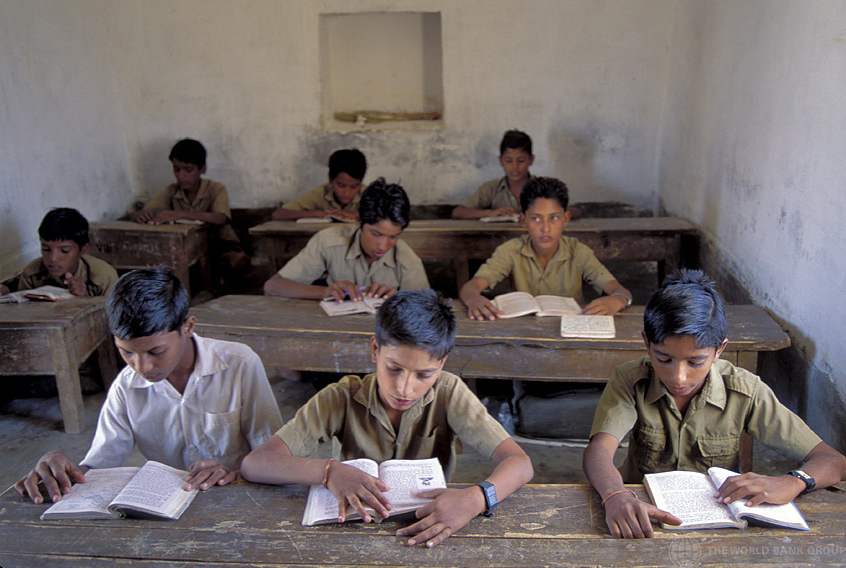MSc Development Studies alum Alejandra Padin-Dujon examines what small Eastern Caribbean economies like Antigua and Barbuda stand to lose through Scotiabank’s move to sell its businesses in the region.
On November 27, 2018, the Bank of Nova Scotia (Scotiabank) announced that it would sell its businesses in nine small Caribbean markets – Guyana, St. Maarten, Anguilla, Antigua and Barbuda, Dominica, Grenada, St. Kitts and Nevis, St. Lucia, and St. Vincent and the Grenadines – for US$123 million. The buyer? Trinidad and Tobago-based company Republic Financial Holdings Ltd. (RFHL).
“We are just refocusing on the markets with size and scale,” explained Stephen Bagnarol, Scotiabank’s senior vice-president and head of the Caribbean South and East at the time. This argument notwithstanding, three years later, the sale to RFHL has not taken place in Antigua and Barbuda.
Why couldn’t Scotiabank sell its Antiguan businesses – totalling two branches and fewer than 75 employees – to RFHL in 2018? This is a story of finance and regional politics.
What Antigua stands to lose
While Scotiabank’s presence in the Caribbean dates to its arrival in Kingston, Jamaica in 1889, the bank opened its first branch in Antigua in 1961 – 20 years prior to independence. Scotiabank’s page on operations in Antigua claims particular strengths in risk management and diversification. These strengths are precisely why Antigua stands to lose from the bank’s departure.
Two major issues arise: jeopardizing the ability of A&B’s financial sector to engage in “de-risking,” and alienating local banks and consortia from domestic markets in favour of a company from Trinidad and Tobago. (Regional politics and business animosity between Eastern Caribbean islands and T&T are relevant here, but beyond the scope of this article.)
De-risking is, in the most basic sense, the process of mitigating risk in financial transactions. Here, the Government of Antigua and Barbuda is concerned because the risk profile or foreign investment potential of a small, highly indebted, meteorologically vulnerable market is generally unattractive. This means that absent of advantageous financial manoeuvres, transactions between Antigua and Barbuda and the rest of the world become very expensive.
How has Scotiabank’s presence mitigated this issue? Primarily, it has done so through “correspondent banking relations” (CBRs). Banks use CBRs between banks to access foreign financial markets without having to open branches abroad. As a large international bank with roots in Canada, Scotiabank is able to establish CBRs at (relatively) affordable rates for Antiguans and Barbudans: it is profitable, cosmopolitan, and minimally risky. The same cannot be said of the local banking sector in A&B, which, at best, is able to distribute its risk over the Eastern Caribbean – a region comprised of countries with a similar risk profile, facing similar circumstances.
Essentially, Antigua and Barbuda stands to lose significant access to international financial markets, and therefore comparatively low international transaction costs. The cost of financial products like insurance could rise as local banks and insurance providers act as middlemen, selling the risk they hold to foreign entities due to low monetary reserves, earning a profit by charging above the international market rate.
Finally, Antigua and Barbuda (and the Eastern Caribbean more generally) would lose an opportunity to strengthen their position in local markets to a company from Trinidad and Tobago. “Enlarging indigenous banks and increasing their capacity” could be regarded as a national priority – though the intrinsic benefit here is unclear.
The “double standard”
In a scathing 2018 op-ed for the news network Antigua Breaking News, Sir Ronald Sanders (Antigua and Barbuda’s Ambassador to the United States and to the Organisation of American States) lambasted Scotiabank for failing, in its decision to sell to RFHL, to observe the same standards of banking integrity enforced by law in Canada, in the Caribbean. In Canada, banks require government permission to sell their banking businesses to foreign buyers. Importantly, the Canadian Minister of Finance must approve new banks with an eye to whether approval is in the “best interests of the Canadian financial system.” Scotiabank has flouted this principle, and the authority of national ministers of finance, in the Caribbean – an unpopular decision.
Pushback
While Scotiabank has successfully sold its operations to RFHL in seven of the nine Caribbean markets it planned to leave, Prime Minister Gaston Browne of Antigua and Barbuda has fought the bank’s decision.* He has refused to sign off on the sale, and as a result, the regional arbiter in such matters – Eastern Caribbean Central Bank – has not authorized it, either.
“We will not be issuing the vesting order unless we get a deal that is satisfactory to us. In that case they will have to go to court because we will not voluntarily do it,” Browne said at a ceremony honouring Antigua and Barbuda’s first prime minister, VC Bird, on December 10, 2018. “We are doing so to ensure that we can get a piece of the pie, to build resilience within the indigenous banking sector to make our banks stronger.”
What’s next?
The apparent resolution to the financial mess of Scotiabank’s departure is a pending sale to Eastern Caribbean Amalgamated Bank (ECAB) – an institution that boasts regional roots and therefore fits national priorities to boost the local financial sector. (Its access to international markets does not rival Scotiabank’s in any sense.) At the time of writing, the sale still lacks approval from the Government of Antigua and Barbuda.
[Update 2 September 2021: The sale has been authorized, and Scotiabank’s businesses will be handed over to ECAB.]
Scotiabank’s departure from A&B, and from the Eastern Caribbean more generally, poses a risk to the financial stability of these small markets. Counterintuitively, the Prime Minister has likened the departure of this institution – a foreign entity established during the British imperial period – and A&B’s ongoing struggle to ensure an advantageous sale, to VC Bird’s pre-independence fight with the “planter class” to “fuel change.” “We cannot be a coward people,” said Browne in 2018, channelling nationalist pride – closely intertwined with postcolonial pride – into the dispute with Scotiabank.
Antigua and Barbuda finds itself in the unenviable position of requiring – even demanding – foreign presence in its domestic market to ensure its own financial stability. It would seem that the postcolonial viability of some Caribbean nations rests in dependency on affiliates of the former colonizer.
*The other remaining country is Guyana, where concerns exist that RFHL will claim a dangerously large share of the local financial market. The bank already holds more than a third of all deposits in the country.
The views expressed in this post are those of the author and in no way reflect those of the International Development LSE blog or the London School of Economics and Political Science. This article was originally published in Ale in Antigua. Image credit: Jonson Di on Flickr.






I am a Vincentian living in London. My colleague is interested in the sale of the Bank and would like to have the particulars regarding the sale and if possible a telephone conversation.